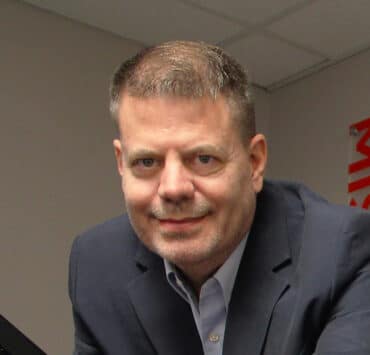|
Getting your Trinity Audio player ready... |
It would take several roles into her career before Linda Lin was exposed to a legal department that was proactive in a field where the legal function is so often reactive. Unsurprisingly, it was an environment where Lin thrived.
“Being proactive makes us better lawyers for the business,” Lin explains. “It not only makes us accountable, but also it gives us a sense of ownership in what’s happening.”
The current executive vice president and general counsel at Coaction (formerly Prosight after a successful go-private venture in August 2021) doesn’t wait for issues to come to her. That’s as true of her extensive insurance law work as it is of an Asian American woman unwilling to wait for equality to catch up with the times.
Lin’s long commitment to helping advance diversity, equity, and inclusion (DEI) is just as essential as her extensive and deep understanding of the insurance space.
“I find [the insurance industry] fascinating. It’s quite complex and challenging. And it’s the backbone of our economy in so many ways.”
Linda Lin
The EVP knows that the conservative approach—waiting for change or work to come across her desk—doesn’t make for an effective in-house advisor. It also does little to help the legal space so often maligned for its lack of representation seek out more diverse voices or experiences.
Lin drives the change.
While many parents would be thrilled with their daughter’s choice to go to law school, Lin’s Taiwanese father and Chinese mother weren’t as convinced. “I think as more traditional Asian parents, they would have preferred me to become a doctor or an engineer,” Lin remembers. “My dad would leave articles at my door about the stress and health issues that plagued lawyers.”
But Lin stayed the course. She landed a coveted clerkship position with the Honorable Dora L. Irizarry in New York’s Eastern District Court. Her parents remained unimpressed (though they eventually came around), but it didn’t deter a deep dive into the insurance space. It may be not the immediate dream job that comes to mind for lawyers.
“I don’t know if anyone has ever gone to school with the hopes of becoming an insurance lawyer,” Lin says, laughing. “But I find it fascinating. It’s quite complex and challenging. And it’s the backbone of our economy in so many ways.”
Lin says the insurance industry is at a crossroads with the old guard of people who helped build the big names in insurance retiring. The huge shortage of talent at the junior and mid-level ranks makes it an ideal time to enter the space.
“I just injected my advocacy for diversity into my day-to-day life.”
Linda Lin
The EVP attributes much of her success and growth as a leader to the mentors and sponsors that took her under their wing and provided her with invaluable guidance; from her prior managers to a former four-time public company general counsel. “I know people talk about being transparent, and I think that can get lost in translation,” Lin says. “I learned how effective it can be to lay out your leadership philosophy at the outset.”
The attorney also says it’s crucial to understand how different team members like to be managed. Every individual is different, but Lin stresses that one of the best moves a people manager can make is providing individuals with the right tools and information they need when they need it.
It may sound rudimentary, but ensuring her people have the needed resources without the extraneous noise runs a delicate balance that requires understanding how her team works best. “It’s a process,” says Lin.
“Obviously, there are issues we can’t always talk about, but I try to be as transparent with my team as I can,” Lin says. “That transparency earns you credibility, and it creates a communication channel that can help head off issues before they actually become issues.”
When it comes to her status as a woman and person of color, Lin advocates for DEI in a profession and industry not known for its diverse representation.
The attorney says she is well-accustomed to people assuming she is meek, unable to take on leadership roles simply because she is Asian American. She’s been confused as a court reporter while litigating in court, and a judge once exclusively addressed her more junior white male colleague during a discovery motion, assuming he was the one arguing the motion.
“Through all of this, I just injected my advocacy for diversity in my day-to-day life,” Lin explains. “I grew up in an immigrant family, where I was taught to assimilate at almost all costs. But I’ve been emboldened over the course of my career to speak up when I see things that aren’t right.”
Lin remembers a previous job, where she discovered that all the senior women were being paid less than their male counterparts. Lin was willing to say something. Her approach, however, played far more strategic.
“I was told that I needed to find the money to make it right,” Lin says. While the response fails fundamentally on virtually every moral and ethical plane, she did it regardless. It was a chance to change things for the better-deserving female leaders, and Lin made it happen.
The EVP has worked with the Asian American Bar Association of New York since she left law school in increasingly senior roles; from chairing the Young Lawyers Committee to chairing the Judiciary Committee and becoming the youngest to serve as the organization’s president in 2011. Lin also proved integral in supporting diversity on the bench by advising and advocating for Asian American candidates for the New York federal and state benches. She’s also the board president of the Sonia & Celina Sotomayor Judicial Internship Program, which seeks to increase diversity in the legal profession by empowering students from underserved communities and diverse backgrounds.
When Lin speaks about making diversity part of her day-to-day, she means it. There are those who wait for change. And then there are those, like Linda Lin, who drive change.

